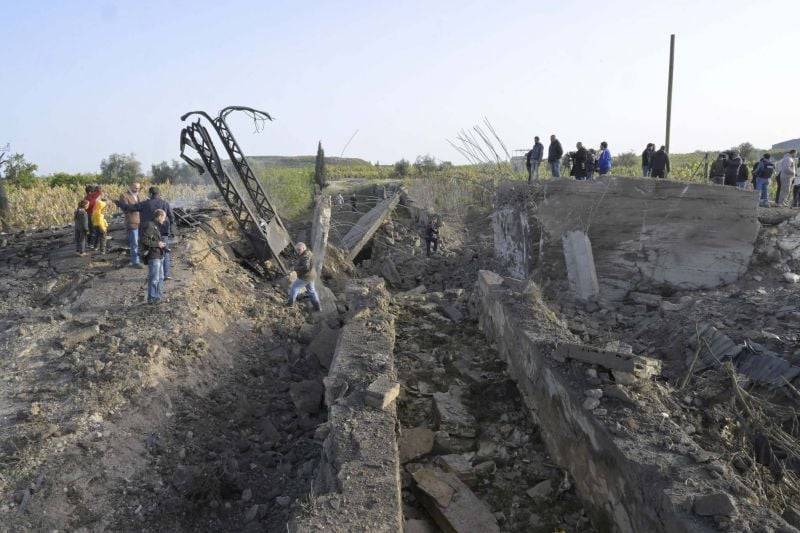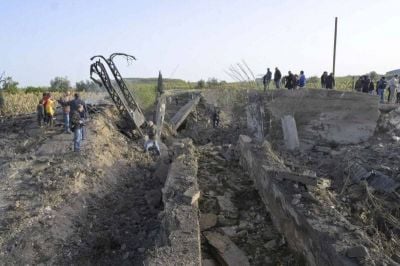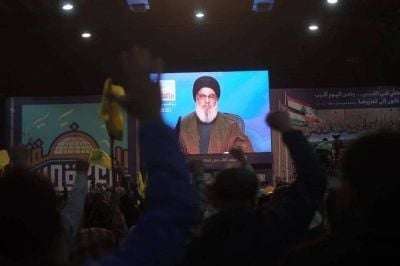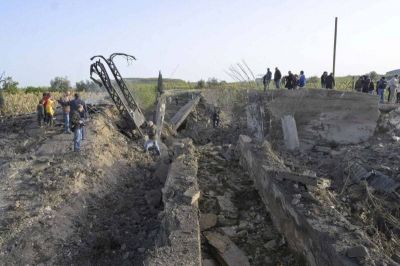
Traces of the Israeli bombardment of April 6 in Qlayleh, in the south of Lebanon. (Credit: Nabil Ismail/Annahar)
BEIRUT — Amid the renewed military escalation between Israel and the occupied West Bank and Gaza for the second consecutive day, and the tension around Israeli military maneuvers at the Lebanese-Israeli border Tuesday, what should we expect from the threats made to Israel by Hamas’s representative in Lebanon yesterday?
L'Orient Today puts this question to Imad Salamey, associate professor of Middle Eastern political affairs at the Lebanese American University, one month after a rocket attack launched from South Lebanon toward Israel.
Should we expect any new attacks on Israel from Lebanon?
"It is expected."
The situation on the Lebanese-Israeli border "is very fluid and the ability of the Lebanese Army and the [United Nations Interim Force in Lebanon] to limit or prevent missile attacks is very constrained by technical capacities, given the close proximity of the Palestinian [refugee] camps and given the fact that Hezbollah may not be very strict in these matters."
"It is possible for a Palestinian response or retaliation from the Lebanese [borders] or even the Jordanian borders" to take place.
Where does Hezbollah stand regarding these threats, and what role might the party play in an eventual new escalation against Israel from Lebanon?
"Hezbollah does not have an interest in an open conflict with Israel nor in a widescale confrontation — it has a vested interest in maintaining security on the borders and preserving that front for something more strategically serious, such as retaliation against an Israeli attack on Iran."
"Yet, Hezbollah may not be so insistent on limited engagement …, where it can appear as a hero to the Palestinian population."
Do you see Palestinian factions, namely Hamas, gaining more power in Lebanon at the moment?
"Of course, the more the nation state or the status of institutions in Lebanon deteriorates and the weaker it remains, the more prospects there are for non-state armed groups — Palestinian, Syrian and Lebanese, all included — to expand power, armed men, [armed] activities, etc."
"The Saudi-Iranian rapprochement, Chinese sponsored, [also] gives Iran and its allies more power than previously thought to engage Israel."
"The Israeli alliance, or so to speak, is fragile at the moment, while Saudi Arabia is now, kind of, breaking rank with the Abraham Accords, all of which gives more power to pro-Iranian entities and elements and gives them more prospects and opportunities to militarily engage with Israel."


